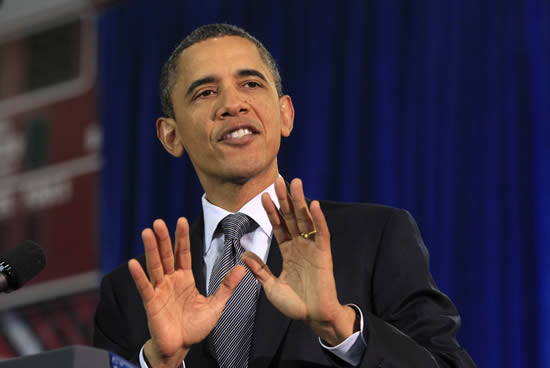Barack Obama ran for President claiming the mantle of Abraham Lincoln. Then he took office and recast himself as the second coming of FDR. He then railed against the “Do Nothing” Congress in his very best Harry Truman impression. Now, in a pilgrimage to the small town of Osawatomie, Kansas, President Obama has given the defining address of his administration and revealed that his heart lies with the old Bull Moose progressive, Theodore Roosevelt.
Osawatomie is where Teddy Roosevelt delivered his famous speech in 1910 calling for a “New Nationalism” and launching his campaign for a third presidential term (the quest led him to become the first Progressive-party candidate). Osawatomie was Roosevelt at his most progressive, and so it was for Mr. Obama. If there was any doubt before, it is now clear that the President has abandoned the center and doubled down on his progressive governing model.
Throughout history and today in many parts of the world, political rule is the privilege of the strongest and the most powerful. America is exceptional because it is dedicated to the principle of universal human liberty: that all are equally endowed with unalienable rights, including the right to the rewards of their own individual labor. The primary obligation of government is to secure property rights, break down artificial barriers to opportunity, and uphold the rule of law. The result is a dynamic social order in which every member of society can work hard and advance based on individual talent and ability. Poverty is no longer a permanent condition. The ladder of opportunity is available to everyone. These principles of human equality and limited constitutional government form the foundation of the traditional American Dream.
About a hundred years ago, there arose a different dream, anchored in the faith that government could engineer a better society, rather than simply leaving the people free to create one. Progressive reformers were convinced that the American founders were wrong in their assumptions about man and about the necessity of limited government. Moreover, advances in science would allow government to reshape society and eradicate the inequalities of wealth that individual rights and democratic capitalism had caused. A more activist government, built on evolving rights and a “living” Constitution, would redistribute wealth and level out differences in society through progressive taxation, economic regulations, and extensive social-welfare programs, all centrally administered by expert bureaucrats.
In 1910, Roosevelt set out to define a more comprehensive progressive philosophy. “The material progress and prosperity of a nation are desirable chiefly so far as they lead to the moral and material welfare of all good citizens,” he observed in his Osawatomie speech. Progress and welfare require not only the centralization of government but also the nationalization of politics—a break from the American tradition of localism. The federal government should play an interventionist role to advance progressive democracy, for “if we do not have the right kind of law and the right kind of administration of the law, we cannot go forward as a nation.”
In his own Osawatomie speech, President Obama donned the mantle of TR. The choice Obama frames is the same offered by progressives 100 years ago: between the harshness of market capitalism (defined in true straw-man fashion as you’re-on-your-own economics with “a free license to take whatever you want from whoever you can”) and the fairness of progressive nationalism (the view that “we are greater together—when everyone engages in fair play, everyone gets a fair shot, everyone does their fair share”). But things have to be made fair through more government programs and regulation. Obama’s program is fundamentally about the rise of a new governing class that insists on enforcing political and economic “fairness” rather than letting us govern ourselves.
At some point in every presidential campaign, there is a speech that defines the candidate and gives context to his policies. By turning to TR’s New Nationalism model, Obama has revealed once and for all that the intellectual antecedent of his administration is the progressive theory of governance. He is calling his party back to its most radical roots. His objective as President is to complete the progressive transformation of America and define its next phase—let’s call it the Fairer Society—by more complicated and extensive government regulation of society and redistribution of wealth and benefits to produce “fair” outcomes.
As the national government becomes ever more centralized and bureaucratic, acting without constitutional limits, it also becomes more undemocratic, and more potentially despotic, than ever. And that’s no American Dream.
The full version of this piece appears in the current issue (December 31) of National Review.
